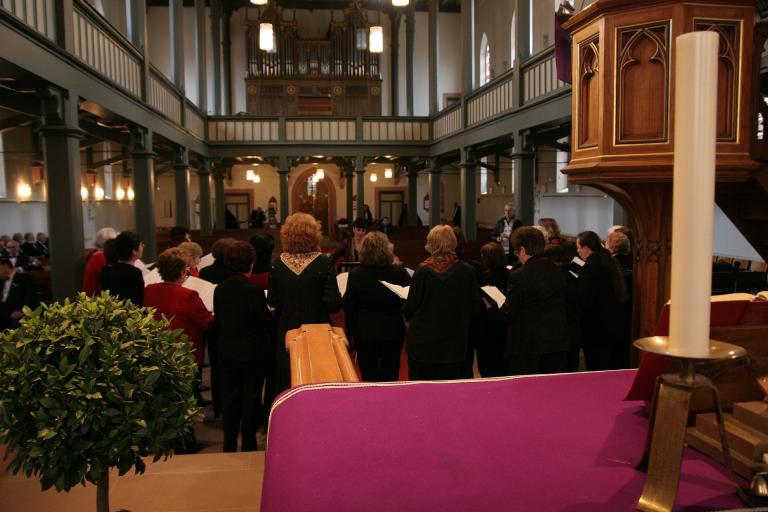Jessica revealed to her small church group that she struggles with depression. She is one in five people who will be diagnosed with a mental health disorder this year. And if she doesn’t address her depression, she could be one of ten who will end up being hospitalized some time in their lives.
Anxiety, depression and trauma related problems are the most common of all mental health disorders. They affect millions of people in our country including those sitting in our pews. So, what protects us from becoming one of the statistics? What prevents one person from rising up when trouble presents, and another from becoming gripped with anxiety or sadness? Don’t we all share the same Bible?
While we don’t have clear explanations regarding who will develop mental disorders, we do know that the cause is often a combination of genetic and non-genetic risk factors that cumulate or come together in such a way that places a person at risk. This is why some people can grow up in a highly dysfunctional environment and still become mentally healthy. Or while someone else struggles with even the smallest frustration.
Consider anxiety and depression: Your genetics play a role–about a 30-40% risk factor. And that number is even higher when it comes to substance use (50-60%). What this means, for example, is that someone predisposed to substance abuse genetically, may develop the problem if put in the wrong environment and exposed to high risk factors. Another person, with no genetic risk factors, may not. But we aren’t victims of our genetics or environments.
God’s Word is a constant reminder of His promises and needs to be a daily part of renewing our minds. Mind renewal is a protective factor that helps build resiliency in people. Our intimacy with Christ gives us power, love and a strong mind.
In addition, there are other protective factors and steps that can be taken in churches to help prevent mental illness:
- Religion and religious activity: Freud was wrong when he asserted that religion was nothing more than a massive neurosis. Strong religious beliefs are a protective factor when it comes to mental health. Study after study supports the idea that religion helps people heal in so many areas. According to the Handbook of Religion and Health (2001), religion impacts mental health in these ways: It provides purpose and meaning in a person’s life. Religion provides people with hope and brings community. Furthermore, religion positively impacts marital satisfaction and stability. It reduces substance use, suicide, anxiety and fear and delinquency. Overall, religious involvement is related to better mental health, better social health and better physical health.
- Social support and safe communities: People who are part of a supportive community and feel a sense of safety in their community do better with their mental health than those who are isolated. Having an environment of support when difficulties come, helps a person overcome problems and build resilience. Without support and safety, we can easily give in to the pressures around us or begin to think in ways that are not healthy. Our mind can wander away from the truth if left unchecked. This is why gathering as a church body is so important. Make the church a friendly place to be, warm and inviting. Then, connect people to small groups or areas of interest so that they can become part of a safe community and feel supported.
- Family connectiveness: Children who grow up with a secure attachment to their parents develop a good sense of self-esteem and self-image. This secure attachment also builds a person’s social skills. When a child knows his or her parent is available and responsive to needs, this brings security and calm in the middle of stress. Security helps build trust and empathy for others as well. On the other hand, children who grow up with parents who are emotionally or physically unavailable, develop insecure attachments, needing lots of reassurance and support. And those who grow up with parents who are in high conflict, abusive or neglectful, often experience insecurity and anger leading to more disconnection in their relationships. This is a risk factor for mental health problems. The question is, can the church contribute to a person’s sense of security? Unhealthy leadership only reinforces those with insecurity and disconnection. But healthy leadership provides a place of safety for people to grow with others. A healthy church body can provide a corrective experience for those in need of a safe place to interact with others. A Sunday School teacher who cares, a small group leader who is responsive to needs and leaders who are compassionate and responsive also play a role in correcting negative experiences.
- Safe maternal behavior during pregnancy: The best prevention against mental health problems is to begin early in life, i.e., in utero. Healthy fetal development is related to a child’s physical health, but also to a mother’s mental health. Mental health issues in the mom can impact low birth weight and increase the risk of medical complications. A 2010 study by Dr. Kathryn Abel found a connection between low birth rate and later risk for a child to develop mental health problems. Giving a child a good start in life by taking care of mom’s physical body and managing stress during pregnancy impact the health and future mental health of children. Mothers who drink, smoke and don’t have good nutrition and care place a child at risk. Thus, caring for moms will go a long way to help a child and protect against poor mental health. This is one reason why nursery care, junior church and Sunday School are so important for families. The more we can attend to moms and dads, the more we help them and the next generation.
- Coping skills for stress and problem-solving: The Bible is filled with prescriptions for healthy coping. Life problems will come, but a person who can problem-solve and cope will lessen their own risk of developing mental health issues. So, church leaders and small group leaders can focus on the application of the Word of God to all kinds of life problems. When problems come, instead of turning to unhealthy distractions or finding ways to escape life, the Bible is a prescriptive guide to walk people through life. This is why discipleship is so important.
In sum, church goers aren’t victims of genetics and life circumstances. They may have factors of high risk either genetically or environmentally, but they can mitigate risk by choices they make as they align with the Word of God through connecting to their church community. It is our job to help people in the church by making the church a supportive and safe community, providing a sense of connection, attending to families and early child care and teaching biblical coping skills for life problems. Churches that put these factors in place are helping people walk in strong mental health.



